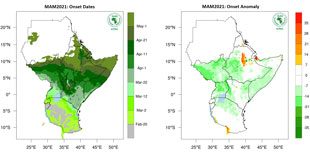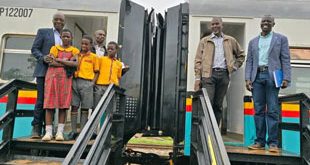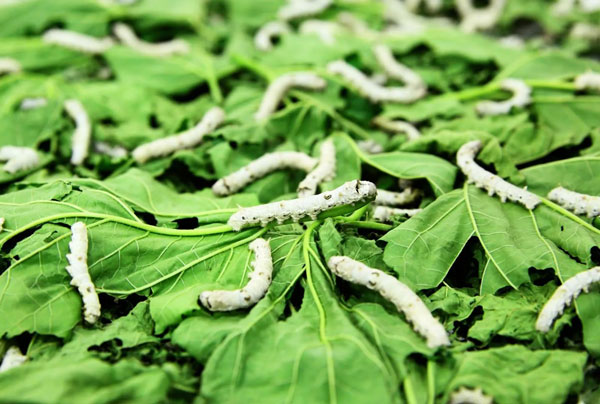
Kampala, Uganda | THE INDEPENDENT | Parliament’s Committee on Science, Technology, and Innovation has released findings that indicate that Uganda’s Silkworm Project that started in the financial year 2017/2018 is struggling to survive.
The Silkworm Project is one of the science initiatives that has so far received Shs 31bn from the Innovation Fund established by President Museveni in 2016.
Poor planning has seen sh20billion of sh35billion for the project go to waste on the farms; factories built are far below expected standards while up to 870 acres of land has been purchased but no land titles processed or transferred yet. Staff have also not been paid for months, the right equipment is not in place and the project has not done an Environmental Impact Assessment (ElA).
Parliament’s Committee on Science, Technology, and Innovation which investigated the operations of the silk project, concluded that the project has been mismanaged and its operations should be streamlined to achieve its objective. They warned that the project was expanding in an ambitious and haphazard manner in the face of limited resources.
The legislators suggested a raft of measures in the management of the silkworm project, including a forensic audit of activates of its project managers and Tropical Institute for Development Innovation (TRIDI). They also called for close cooperation with National Agricultural Research Organisation (NARO) to end 100% import of silkworms from China.
Sh20b wasted
In their key finding, the Parliament committee chaired by Remigio Achia observed poor sequencing of the sericulture processes, resulting in the wastage of resources amounting to Shs 20.7 billion.
“The said amount (Shs 20.7bn) was sunk into the establishment and management of Mulberry gardens whose leaves matured and went to waste because the rearing houses were incomplete or non-existent,” reads the report of Parliament tabled this week.
“Silkworm rearing houses should have been constructed and equipped before planting the mulberry gardens; and the silkworms introduced towards the maturing of the gardens,” said the Committee.
“This would have ensured the achievement of tangible results with the silkworms producing cocoons. On the contrary, over 2300 acres of mulberry gardens were established in the absence of silkworm rearing houses.”
The Tropical Institute for Development Innovation (TRIDI) boss Dr. Clet Wandui Masiga has since defended the operations of the project, attributing the challenges to the suspension of funding by the Ministry of Science and Technology.
Masiga said the project would have created many jobs and that the delayed release of funds saw the project fail to pay casual workers and contractors.
Dr. Masiga was one of the researchers who applied for the innovation fund to implement a project titled, “Evaluating the utility of sericulture and Apiculture technologies and Innovations, as tools for household-wealth creation and employment generation in Uganda.”
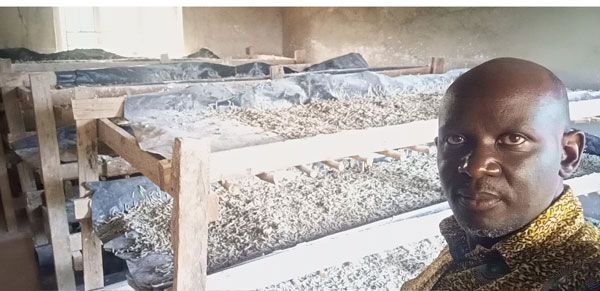
Project is off course
The key targets of the silkworm project were to acquire 50,000 acres of land under mulberry, construct and equip eight Research and Technology Transfer Centers, construct 25 million cubic meters of valley water tanks, construct 50,000 silkworm rearing houses, install six complete lines of post cocoon processing equipment in six major regions of Uganda, and install 50 complete sets of 40-end silk reeling factories in 50 districts of Uganda.
The investment was projected to be about Shs 756 billion over a period of five financial years.
The project envisaged building 8 research and technology transfer centers over a period of five years at a cost of Shs 40 billion.
According to the timeline, by the end of June 2022, five research and technology transfer centers should have been built, but so far only two have been built in Kween District and Sheema District.
The Parliamentary Committee observed that the two newly constructed centers have neither been fully completed nor equipped.
“The buildings did not have approved designs or drawings that would qualify them to be factory facilities; and they were constructed using poor quality materials that only qualified them to be temporary structures,” said the lawmakers.
The buildings had poor lighting, ventilation, and cracked floors even before they were completed, as was observed in Kween District.
For example, the facility in Kween District was located in a low lying area that is prone to flooding, and if the area flooded before the machines were evacuated, they could be destroyed.
The report says the shell house on Rubare Farm cost Shs 1.2 billion.
“The cost was not commensurate with the structure in place… The Committee recommends that a forensic audit be expeditiously carried out to ascertain value for money for all the building structures erected under the sericulture project managed by TRIDI,” said the MPs.
Land titles saga
TRIDI reportedly has cumulatively purchased 870 acres of land at a cost of Shs 8.2 billion and acquired 50 acres under lease agreements at a cost of Shs 200m.
However, the Parliament Committee discovered that all the land titles for the pieces presented were in individual names and not in the name of TRIDI or GOU, indicating that no sub-division and transfer of land ownership had been done since the purchase of the land.
“This put GOU at risk of financial loss if the subdivision and transfer of the acquired land from private hands to the government are not done expeditiously. Some of the titles had encumbrances, meaning that no due diligence was undertaken before purchasing the land,” the MPs’ report reads in part.
Lawmakers called for the immediate transfer of the land purchased by TRIDI with government funds to the Uganda Land Commission within 3 months and a report to this effect to be submitted to Parliament.
“TRIDI should halt all land purchases until the previously purchased land is transferred to the government of Uganda and put to use, and the future expansion and purchases of land by TRIDI should be aligned to an approved business plan.”
Workers not paid
The Committee was also concerned that workers at TRIDI had spent six months (May to October 2022) without pay, yet TRIDI had been receiving funds from the government until June 2022.
The Committee observed that as of October 2022, TRIDI had only gone 3 months without funds; therefore, at worst, the workers should have been demanding arrears equivalent to that period.
MPs also discovered that there was no evidence of an Environmental Impact Assessment (ElA) carried out to ascertain the extent of threat posed by the silkworm eggs imported from China to Uganda.
“There was no meaningful engagement between TRIDI and Agriculture Research Institutions in the country such as the National Agricultural Research Organisation (NARO) to explore possibilities of local production of silk worms and agronomy best practices for mulberry in the country. This exposes the industry to reliance on imports of the silkworm eggs rather than opening up avenues for local production and research in the future,” said the MPs.
The Committee said TRIDI must work closely with the National Agricultural Research Organisation (NARO) to explore the production of silkworm eggs in Kawanda Research Station and that funding should be allocated to the silkworm egg production unit in Kawanda to feed the sericulture industry in the country.
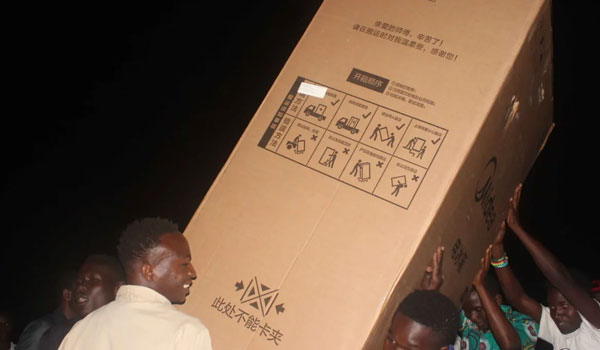
Haphazard expansion
The Committee was informed that the project had made a 30% deposit on additional machinery to be delivered to the Kween, Kayunga, and Nwoya project sites.
It was noted that the project was expanding in an ambitious and haphazard manner in the face of limited resources.
“The acquisition of machinery for multiple sites with none of the sites having the full chain of equipment to produce results is mirrored in the expansion of the project to 34 sites with none of the sites having the full sericulture value chain from mulberry growing to production and sale of silk products,” said the MPs.
The Committee observed that the mode of project implementation was unsustainable and illogical; the aspect of commercialization was reduced to activities that were not leading to the end goal of sales, exports, and profits in the long run, and that the government resources were wasted on expansion rather than focusing on the completion of existing activities up to the point of realizing profit.
The Committee whose report was released in June, recommends that the Ministry of Technology, Science, Technology, and Innovation halt the expansion of the project until the sericulture sites in Sheema and Kueen districts progress through the various stages of the sericulture value chain and the products are released to the market for sale.
“Government should not abandon sericulture on the basis of previous experiences in the Country but rather carefully study the sector, begin on a small scale and upgrade gradually after proven successes. In this regar TRIDI should be allowed to scale down to two sites and prove profitabilitg of the project before government embarks on expansion. During this period TRIDI should revert to its status as a Research and Development Project,” the MPs’ report recommended.
 The Independent Uganda: You get the Truth we Pay the Price
The Independent Uganda: You get the Truth we Pay the Price
